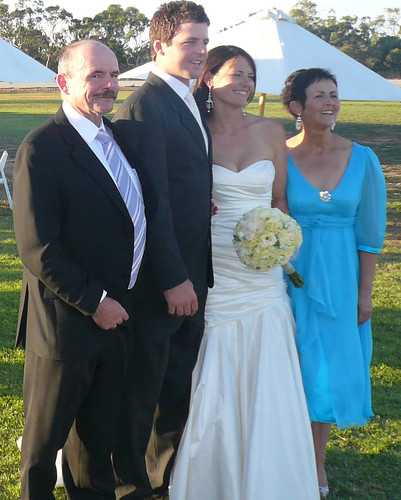Tonight I read a wonderful post by Steve Hargadon titled Web is the Future of Education.
He says..
I believe that the read/write Web, or what we are calling Web 2.0, will culturally, socially, intellectually, and politically have a greater impact than the advent of the printing press. I believe that we cannot even begin to imagine the changes that are going to take place as the two-way nature of the Internet begins to flower, and that even those of us who have spent time imagining this future will be astounded by what happens.
Steve discusses what he thinks are 10 trends in that regard that he thinks are particularly pertinent to education. I won't list them here because simply listing them wouldn't do them justice and you really need to read them in context.
Finally he suggests 7 steps that educators might learn more
they are: (with my comments in blue)
Learn About Web 2.0-
if you don't understand it and don't know where to start then start somewhere. join a ning, read a blog, join twitter, do something each day on the web that is part of education
Lurk-
spend some time but don't necessarily respond or comment. There is nothing wrong with just reading and looking
Participate - once you have checked out a few blogs or nings or whatever you choose to look at, have a go at participating. Post a comment, ask a question, help someone out with an idea. Remember we are all learning together.
Digest This Thought- if there is content overload, the produce more content. This works for me. I know that the more I interact with content on the web and then react or create more, the more successful I am in coping with the overload of content and ideas there are.
Teach Content Production - for me, as an educator I should be empowering my students to think and produce on the web. Doing so encourages and fosters thinking. But I have to teach how to do it, it won't just happen and/or there is a danger of too much superficiality
Make Education a Public Discussion-
we have to open up the conversation more, by posting more, by producing more, by teaching more, I hope we open up more opportunities for those who are stakeholders to talk, learn and discuss education
Help Build the New Playbook . This to me is the most powerful suggestion. We are in a position to actually teach here. This is not only about collaboration and communicating. There are opportunities here for deep discussions with our students, for challenging them to think, design, create and learn through others . It's about asking the right questions, creating the right opportunities, learning the right skills.
I couldn't resist leaving a comment and while the comment doesn't reflect my thoughts above, it adds a little more to the overall thought process I think.
---------------
Hi Steve, I see that there is a wide range of opinions and responses to your post and that is exactly what you asked for, so I hope you are enjoying the conversation. 33 comments is pretty cool. I'm thrilled when I get 5 ;) But I digress. I think I fall somewhere in the middle of those who are sceptical and those who are wildly enthusiastic. I am an eLearning coach in a school and the majority of my work is creating opportunities and supporting teachers to enhance teaching and the learning with technology. Because I see real power in the engagement factor and the collaboration opportunities of Web2, I most often suggest learning projects that use web2 in some way. And I love every opportunity to do so. But we have a long way to go. I would say that in my school there are only one or two teachers who are actively using web2 tools and only one that I am aware of that is seeking collaborations and learning opportunities with other schools independently from my support. I have learned to be patient and to enjoy the small steps that I witness. It's a real dichotomy. Here we have this rapidly expanding web2 and its associated applications in education that seem to change and evolve overnight. And yet in many (most) of our schools it's baby steps that will take years.
Subscribe to:
Comments (Atom)



